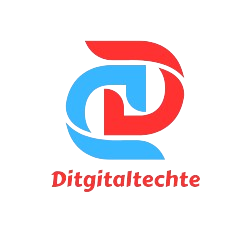In the good sized expanse of the net, memes have grow to be the lingua franca of the virtual age, encapsulating complicated thoughts in simple, often funny pictures or texts. One such meme that has received prominence is the “Well, Actually” meme. This meme, usually featuring a pedantic man or woman interjecting with corrections or actual clarifications, highlights a growing fashion in on line interactions: the subculture of grammar and fact-checking.
The “Well, Actually” meme finds its roots in a specific type of net conduct—one wherein people, frequently perceived as pedants or understand-it-alls, interrupt conversations to offer corrections, irrespective of the necessity or relevance. This phenomenon isn’t new; it is able to be traced again to the early days of net boards and chat rooms. However, its portrayal as a meme has added this conduct into sharp recognition, turning it into a topic of both ridicule and reflection.
The Anatomy of the Meme
At its center, the “Well, Actually” meme is a representation of an man or woman who prioritizes correctness over the waft of communique. It frequently features a character, normally a stereotypical nerd or geek, who butts into a dialogue with a word like “Well, really…” followed by using a correction or a fact-take a look at. This man or woman is a symbol of the compulsive need to be right and to make sure that every element is accurate.
The meme serves a twin motive. On one hand, it satirizes folks that disrupt conversations with unnecessary corrections, portraying them as socially unaware and overly concerned with trivia. On the alternative hand, it brings to mild the importance of accuracy and the pursuit of fact in the age of misinformation.
The Rise of Grammar and Fact-Checking Culture
The prevalence of the “Well, Actually” meme may be attributed to the rise of a grammar and reality-checking tradition on line. This culture has been fueled through numerous elements:
The Spread of Misinformation: The net, while a treasure trove of facts, is likewise rife with inaccuracies, falsehoods, and misinformation. The ease with which false information may be disseminated has brought about a heightened awareness and a stronger push for reality-checking. Individuals correcting others online are regularly driven by way of the desire to prevent the unfold of incorrect information.
The Importance of Digital Literacy: As more people rely upon the internet for news and information, digital literacy has end up important. Knowing how to figure credible assets from unreliable ones is crucial. This has caused a greater emphasis on reality-checking and correcting inaccuracies whilst they’re spotted.
Social Media Dynamics: Platforms like Twitter and Facebook encourage quick, concise posts. This brevity can result in oversimplifications or mistakes, prompting others to jump in with corrections. The public nature of those systems also means that corrections and truth-exams are seen to a huge target audience, doubtlessly reinforcing the conduct.
Cultural Valuation of Intelligence: In many on-line groups, especially those focused around academia, generation, and technological know-how, there may be a excessive price located on intelligence and accuracy. Being correct is regularly seen as a signal of expertise and understanding, incentivizing individuals to engage in “Well, Actually” conduct.
The Impact on Online Communication
While the goal behind corrections and truth-checks is often noble, the “Well, Actually” meme highlights a number of the poor influences this behavior could have on online communication.
Disruption of Conversation: Constant corrections can disrupt the glide of communique, making interactions sense more like debates or lectures in place of dialogues. This may be specifically off-installing casual or social contexts.
Perceived Arrogance: Those who frequently correct others can be perceived as smug or condescending, although their intentions are exact. This can cause resentment and struggle, in place of constructive dialogue.
Social Dynamics: In group settings, “Well, Actually” behavior can have an effect on social dynamics, probably alienating people who feel their contributions are undervalued or continuously scrutinized.
Balancing Accuracy and Etiquette
The rise of the “Well, Actually” meme underscores the want for stability in online interactions. While accuracy and the correction of incorrect information are essential, so too are the concepts of respectful and thoughtful verbal exchange. Here are some guidelines to strike this balance:
Assess the Context: Before jumping in with a correction, do not forget whether or not it’s far vital and suitable for the context. Not each mistakes desires to be corrected, specially in informal or social settings.
Be Respectful: Frame corrections in a polite and non-confrontational way. Instead of beginning with “Well, simply,” try the use of terms like “I accept as true with” or “It might be beneficial to recognise.”
Encourage Dialogue: Foster an surroundings in which discussions are advocated, and corrections are a part of a larger communique, in preference to remoted interruptions.
In end, the “Well, Actually” meme shines a mild on a large aspect of internet subculture—the balancing act among the pursuit of accuracy and the renovation of tremendous, respectful conversation. As the digital panorama continues to adapt, locating this stability will remain a crucial element of our interactions on-line.





